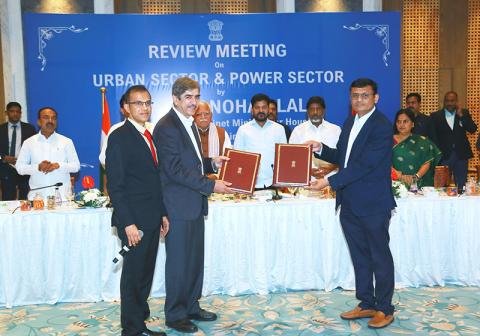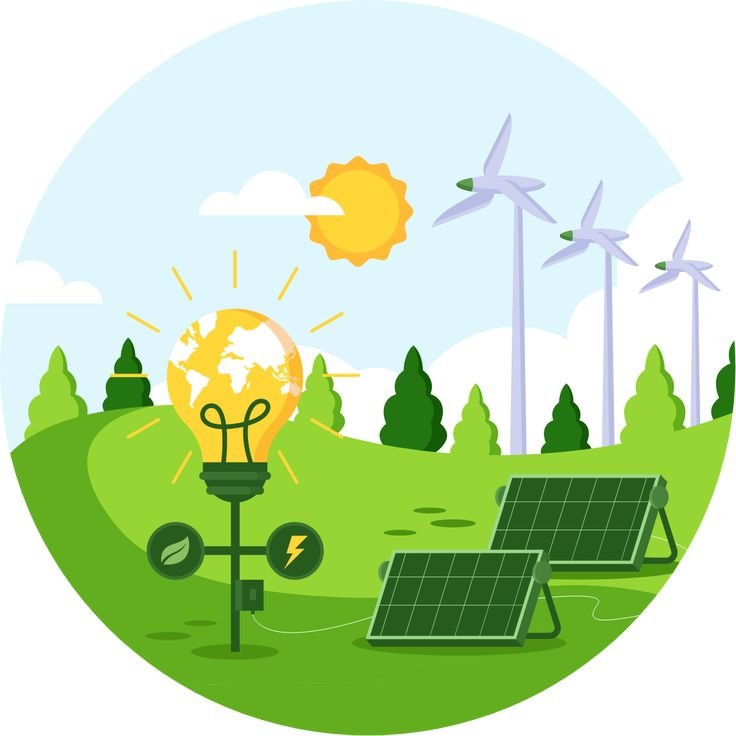TERI and BEE partner to set up Centre of Excellence for Energy Transition in Hyderabad
The Centre of Excellence for Energy Transition is envisioned as a world-class knowledge hub designed to promote research, innovation, and capacity-building in energy transition technologies and policies.
A Memorandum of Understanding (MoU) between Bureau of Energy Efficiency (BEE), Ministry of Power, Government of India and The Energy and Resources Institute (TERI), was signed in Hyderabad, for jointly setting up the Centre of Excellence for Energy Transition (CoEET) in the TERI’s Institute of Energy Transition (IoET) at its campus in Hyderabad. BEE and TERI collaborate to foster innovation, research, policy advocacy and capacity building for energy transition and building a sustainable future.
This collaboration is a significant step toward advancing India’s energy transition efforts and fostering sustainable development. The Centre of Excellence for Energy Transition is envisioned as a world-class knowledge hub designed to promote research, innovation, and capacity-building in energy transition technologies and policies. By fostering partnerships with national and international organizations, the Centre aims to enhance India’s capabilities in addressing energy transition challenges and developing solutions that align with global sustainability goals.
The Centre of Excellence for Energy Transition will focus on research and development in emissions reduction, energy efficiency, and clean technology adoption. It will conduct studies on baselining GHG emissions in large industries, MSMEs, buildings, transport, power, and mining sectors. The Centre will validate, demonstrate, and promote adoption of clean and low carbon technologies to reduce energy consumption in buildings and industry such as motors, HVAC systems, efficient lighting, waste heat recovery, and smart manufacturing systems. Additionally, it will develop frameworks for building codes, minimum energy performance standards (MEPS), and circular economy models to accelerate the energy transition agenda. By incorporating innovations like AI-enabled real-time energy monitoring, it aims to enhance efficiency in energy generation, transmission, and distribution while minimizing losses.
The MoU was signed in the presence of Manohar Lal, Union Minister of Power and Housing & Urban Affairs, and A Revanth Reddy, Chief Minister of Telangana, along with senior dignitaries and officials from the Ministry of Power, BEE, the Government of Telangana, and TERI.
Speaking on the signing of the MoU, the Union Minister of Power, Manohar Lal, remarked, “The Centre of Excellence for Energy Transition is a bold and transformative initiative that underscores India’s commitment to achieving sustainable development goals. By fostering cutting-edge research, collaboration, and innovation, the Centre will act as a catalyst for clean energy adoption, enabling us to lead the global transition to a low-carbon economy. This partnership between BEE and TERI sets a benchmark for future collaborations in the energy sector.”
Dr Vibha Dhawan, Director General, TERI, expressed, “TERI is honoured to join hands with BEE in setting up the CoEET, which aligns with the shared vision of promoting a sustainable future through fostering cutting-edge research in climate and energy transition domains. The Centre’s multi-disciplinary approach will offer holistic and actionable solutions to the pressing climate and energy risks. It also offers a space for engaging meaningfully with businesses, academia, and other potential sectors.”
Srikant Nagulapalli Director General, BEE, highlighted the transformative potential of the collaboration, stating, “The Centre will serve as a vital platform for fostering innovative solutions and facilitating capacity building in energy efficiency and low-carbon technologies. It will be instrumental in achieving our national objectives of reducing energy consumption and enhancing the adoption of cutting-edge technologies.”
The Centre of Excellence for Energy Transition





